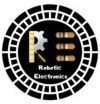Machine control instructions in 8086
Machine control instructions in 8086 are referred to the instructions that are done with control flags of flag register.
AND operation:
| A | B | A*B |
| 0 | 0 | 0 |
| 0 | 1 | 0 |
| 1 | 0 | 0 |
| 1 | 1 | 1 |
The AND table shows that
- AND operation between any bit and zero is always zero.
- AND operation between any bit and one is the bit itself the result.
Applications of AND operation.
- Reset the lower nibble without affecting higher nibble of a register A ( 0100 1011 ). Then we do an AND operation with A register. The bits we wanted to RESET should be AND with 0. The bits we wanted to keep unchanged , do AND operation with 1.
OR OPERATION
| A | B | A+B |
| 0 | 0 | 0 |
| 0 | 1 | 1 |
| 1 | 0 | 1 |
| 1 | 1 | 1 |
The OR table shows that
- OR operation between any bit and zero is the bit itself the result.
- OR operation between any bit and one is always one.
Applications of OR operation.
- SET the lower nibble without affecting higher nibble of a register A ( 0100 1011 ). Then we do an OR operation with A register. The bits we wanted to SET should be OR with 1. The bits we wanted to keep unchanged , do OR operation with zero.
Processor / Machine Control group
PUSHF
This instruction does not have any operand. And it says to push the flag register into stack.
Upper byte of the flag will be pushed first and then the lower byte will be pushed.
POPF
This is the reverse of the above instruction, this instruction gets the data from stack to the flag by popping.
LAHF
This stands for load AH from flag.
AH ← Flower
AH would get the lower byte of flag register.
SAHF
This stands for storing AH data into a flag.
Flower ← AH
AH would get the lower byte of flag register.
There are few bit instructions, which control specific flags only.
CF :
STC
Set the carry flag
CF ← 1
CLC
Clear the carry flag
CF ← 1
CMC
Complement the carry flag
CF ← CF bar
DF
This is direction flag.
STD
Set the direction flag
DF ← 1
CLD
CLear the direction flag
DF ← 0
IF
This is the interrupt flag.
STI
Set the interrupt flag
IF ← 1
CLI
CLear the interrupt flag
IF ← 0
As seen in the flag register tutorial, most of the flags get changed after every arithmetic operation but three flags( DF, IF, TF ) are changed by the programmer only . DF and IF have instructions, but TF has separate code to make it.
To set TF flag
TF flag is in the 9th position from LSB, which means it is LSB of higher byte.
PUSHF ; #flag is pushed into stack
POP BX; # flag is popped into BX register, now flag is in BX register.
OR BH, 01H ; # we are doing OR operation between TF and 1, which is 1 other bits remain unchanged( refer starting of this tutorial )
PUSH BX;
POPF;
To reset TF flag
PUSHF ; #flag is pushed into stack
POP BX; # flag is popped into BX register, now flag is in BX register.
AND BH, 0FEH ; # we are doing AND operation between TF and 0, which is 0 and other bits remain unchanged( refer starting of this tutorial )
PUSH BX;
POPF;
Note: Before FEH we have to place 0, to make sure that it is a number, otherwise processor would consider it as an character.
